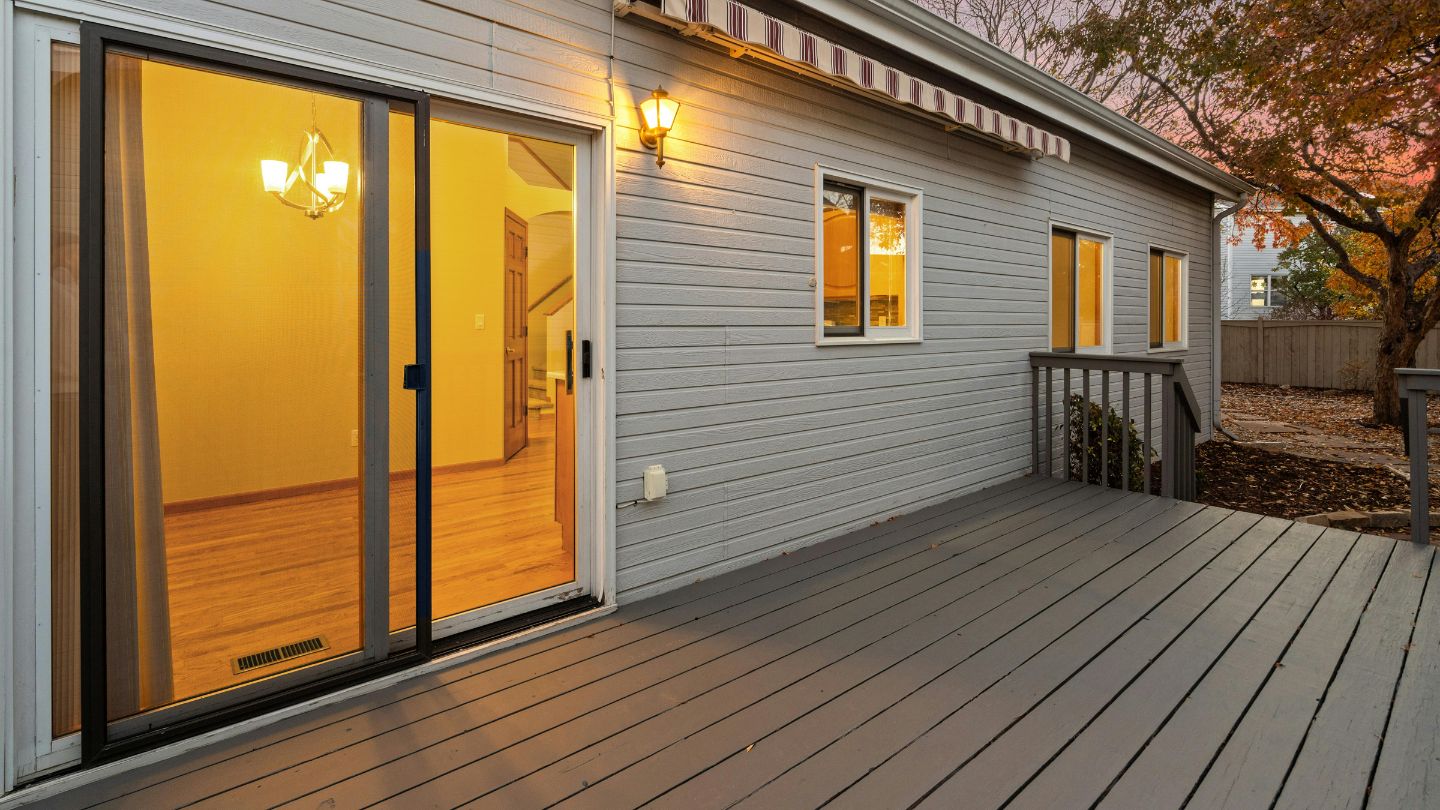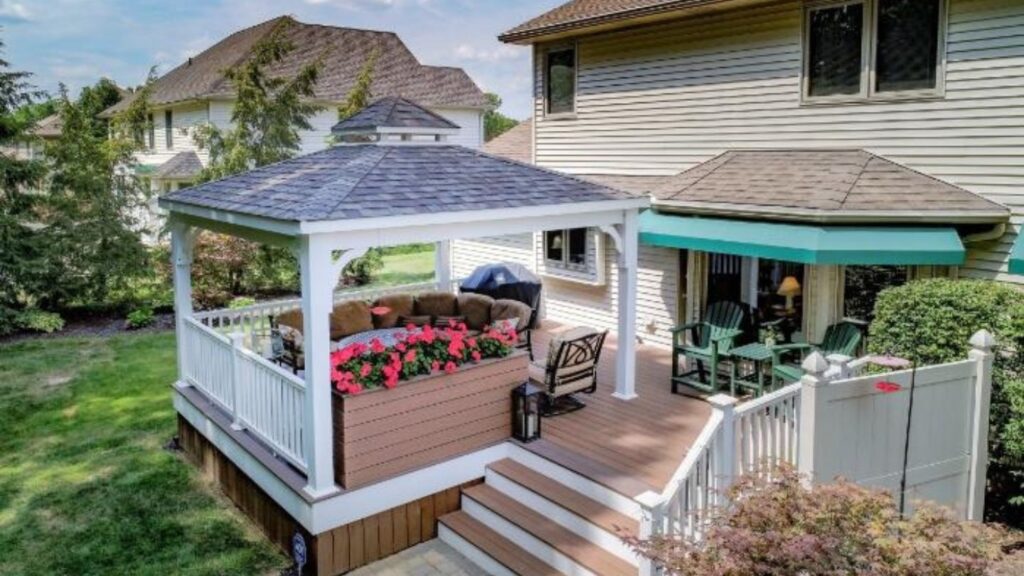When the summer sun blazes overhead, your deck can quickly turn from a cozy retreat into a surface too hot to touch. The type of decking material you choose plays a significant role in maintaining comfort during these hot climates. If you’re looking for answers to what type of decking stays coolest in direct sun, you’ve come to the right place. This guide will explore the best materials and design tips for keeping your outdoor space cool, comfortable, and inviting.
Why Does Decking Get Hot?
Understanding why your decking material gets so warm under direct sunlight is key to making an informed choice. When exposed to the sun’s rays, a deck’s surface absorbs heat. Factors like the material type, color, texture, and thickness affect how much heat will be retained. For instance, darker decking boards or dense materials will trap more heat, resulting in warmer surfaces. If you live in regions with high sun exposure, choosing materials and designs that manage heat retention can drastically improve your deck’s usability.
Natural Wood Decking
Cooling Properties of Wood Decking
When considering traditional wood decking, natural wood is often regarded as one of the coolest options. Its inherent natural fibers make it more resistant to heat absorption compared to synthetic materials. Popular choices like cedar, redwood, and tropical hardwood decking reflect heat well and maintain lower surface temperatures.
Light vs. Dark Wood Decks
The shade of the wood plays a critical role in its heat retention. Light-colored wood decking, such as weathered cedar, will stay cooler under direct sunlight. Darker hardwood decking options, like mahogany or walnut, may look luxurious but tend to absorb more heat.
Considerations of Wood
Wood decks offer a classic appeal and are naturally cool to walk on. However, they require more maintenance than synthetic materials and may not be ideal for busy homeowners. Regular sealing, staining, and sanding are necessary to keep a wood deck looking its best.
Read More: How Do I Keep My Wood Deck Looking New?
Composite Decking
Does Composite Decking Stay Cool?
Composite decking has become a popular choice for homeowners due to its durability and sleek appearance. However, it’s no secret that composite deck boards can get hot under direct sun, especially darker-colored boards. That said, manufacturers now offer heat-resistant composite decking options designed to combat excessive heating.
Composite decking have developed innovative technologies to improve heat resistance. They often feature capped composite decking boards that include reflective properties to minimize heat retention.
Key Factors Influencing Composite Decks
The color and finish of composite decking material significantly affect its surface temperature. Choosing lighter-colored boards like gray or beige, and opting for textured finishes, can keep composite decks cooler under intense sunlight.
PVC Decking
Why Choose PVC Decking?
PVC decking, made from 100% recycled or new plastic materials, is a robust option designed to endure elements like rain, UV rays, and high heat. Modern PVC options include innovative designs that aid in reflecting heat rather than absorbing it.
Cooler Benefits of PVC
PVC deck boards are often lighter in color and can be enhanced with UV-resistant coatings to reduce surface temperatures. While PVC decking may seem expensive, its low maintenance needs and heat-resistant advantages make it an excellent pick for deck surfaces with heavy sun exposure.
Designing a Cooler Deck
Choosing the right material is just the starting point. Combining smart deck design with proper material selection can make your deck even cooler. Check out these actionable design tips:
Lighter Colors
Whether it’s composite decking, wood decking, or PVC decking, always go with lighter shades like light gray, sandy beige, or whitewash. These colors reflect sunlight and reduce surface temperatures.
Covered Areas
Add a patio cover, pergolas, or pavilion to minimize exposure to direct sunlight. The extra shade will not only keep your deck cool but also reduce wear and tear on your decking boards.
Outdoor Rugs
Strategically place outdoor rugs on heavily trafficked areas of the deck. Rugs can act as heat barriers while adding aesthetic appeal.
Considering Local Climate and Sun Exposure
Your climate plays a pivotal role in deciding what decking material stays cool. Regions with consistent sun exposure may benefit more from heat-resistant composite decking or light-colored traditional wood decking, while zones subject to fluctuating weather might need multi-functional materials like PVC or concrete. Additionally, monitor how much direct sun your outdoor decking receives throughout the day. Some materials may fare better in shaded areas compared to full exposure.
Summing It Up
Crafting an outdoor space that remains comfortable in direct sunlight starts with selecting the right materials. From light wood decking to heat-resistant composite or PVC options, there are plenty of choices to ensure your deck stays cool and inviting even during the hottest days. Pairing smart material choices with thoughtful design elements, such as lighter colors, outdoor rugs, and shade features, can take your deck’s comfort to the next level.
At Woodland Deck Company, our experts specialize in designing and installing stunning outdoor spaces that combine aesthetics and functionality. Whether you’re looking to upgrade an existing deck or start from scratch, we’re here to help bring your vision to life with durable, high-quality materials that suit your unique needs. We also specialize in TimberTech Decking in Northeast, Norton, Strongsville, and Solon. Contact us today to transform your outdoor living experience!






